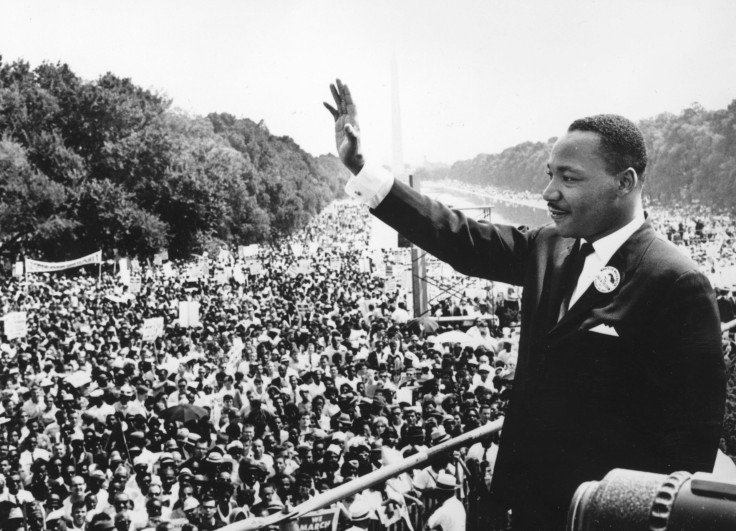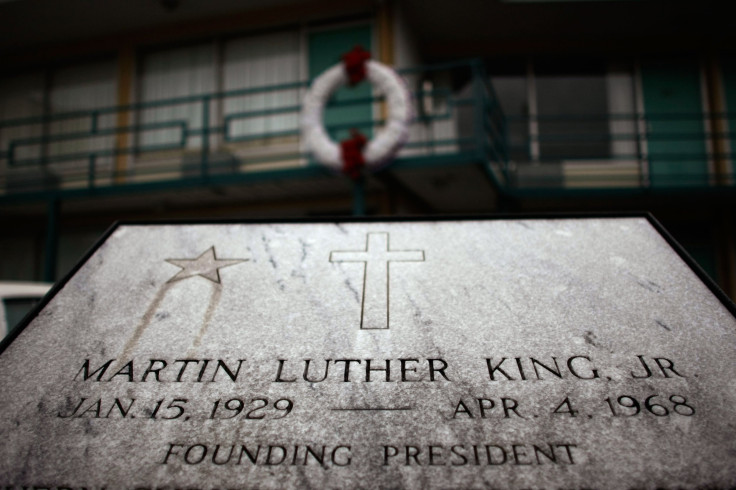How Did Martin Luther King Jr Die? 7 MLK Assassination Facts

Baptist minister and civil rights leader Martin Luther King Jr.'s journey to create equal rights for African-Americans came to an end on April 4, 1968 when he was assassinated.
Wednesday marks the 50th anniversary of the death of the legendary figure in America's history. Here are some lesser known facts about King’s assassination:
1) King was standing on the balcony of room 306 of the Lorraine Motel – before meeting Memphis minister Samuel “Billy” Kyles, who invited him to have dinner with a few other guests – when he was fatally shot. Ralph Abernathy of the Southern Christian Leadership Conference, who was standing with him on the balcony, cradled King after he was shot.
2) The horrific aftermath of King’s death was recorded by Joseph Louw, a South African photographer, who was working on a documentary about King. He was having dinner near the motel where King was staying when he suddenly felt the urge to watch the news. As he made his way into the facility, he heard a gunshot go off. He rushed to the balcony and realized what had happened.
“At first, it was just a matter of realizing the horror of the thing. Then I knew I must record it for the world to see,” he said.

3) Mystery still surrounds the identity of the man who shot King. The assassin, James Earl Ray, initially pleaded guilty to the crime but later recanted his admission. Ray was an escaped felon and at the time the number 277 man on the FBI's Most Wanted Fugitives list. He told the police that a man named “Raoul” recruited him in a larger conspiracy – a theory that was supported by King’s wife and children.
“There is abundant evidence of a major, high-level conspiracy in the assassination of my husband,” Loretta King said after the verdict, where Ray was sentenced to 99 years in prison, Courier-Tribune reported.
“It pains my heart,” said Bernice King, 55, the youngest of Martin Luther King’s four children and the executive director of the King Center in Atlanta, “that James Earl Ray had to spend his life in prison paying for things he didn’t do.”
4) King was killed by a single bullet — a .30-06 caliber rifle bullet that entered his right jaw, traveled through his neck and stopped in his shoulder blade. The bullet caused damage to his lower cervical and upper thoracic spinal cord and severed multiple vital arteries.
5) King was rushed to St. Joseph's in Memphis where doctors attempted emergency surgery before pronouncing him dead at 7:05 p.m. local time (8:05 p.m. EDT), according to the Ethics and Religious Liberty Commission.
6) In his last sermon before his death, delivered in Memphis, Tennessee, King spoke of nonviolent protests and boycotts. “We’ve got some difficult days ahead. But it really doesn’t matter with me now, because I’ve been to the mountaintop ... And He’s allowed me to go up to the mountain,” King said. “And I’ve looked over, and I’ve seen the promised land. I may not get there with you. But I want you to know tonight that we, as a people, will get to the promised land.”
7) King’s assassination spurred nationwide outrage and chaos. Nearly 100 cities were subjected to looting, arson, and violence, resulting in death and major property damage. More than 40 men and women were killed, approximately 3,500 were injured, and 27,000 were arrested.
© Copyright IBTimes 2025. All rights reserved.






















